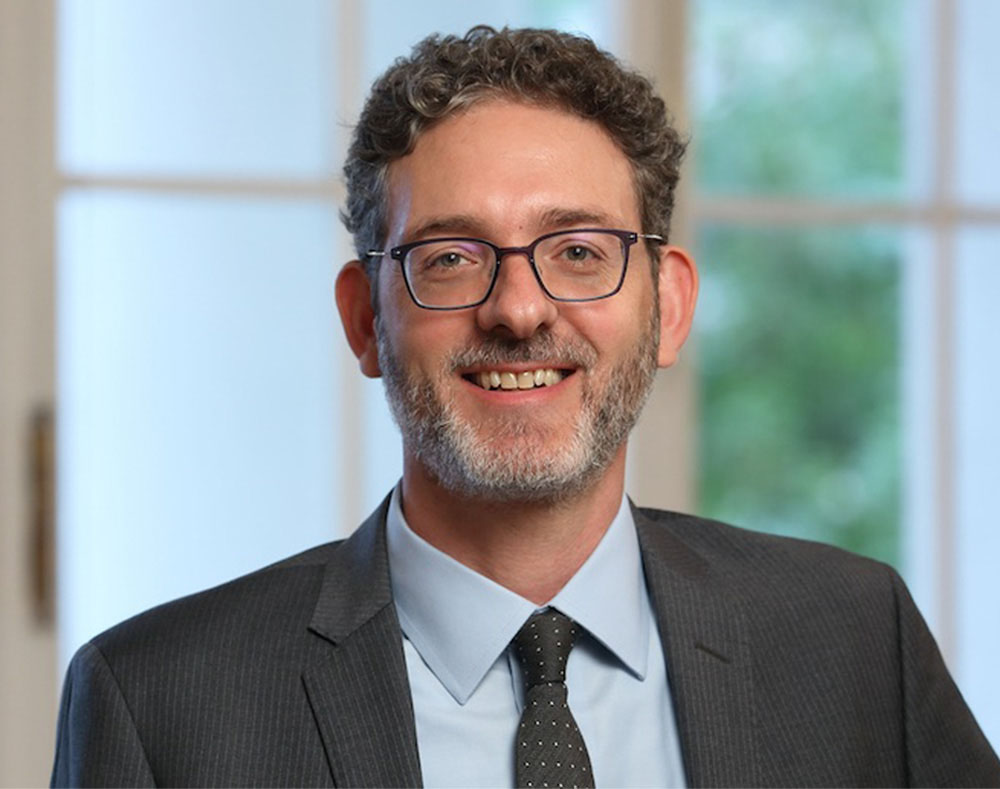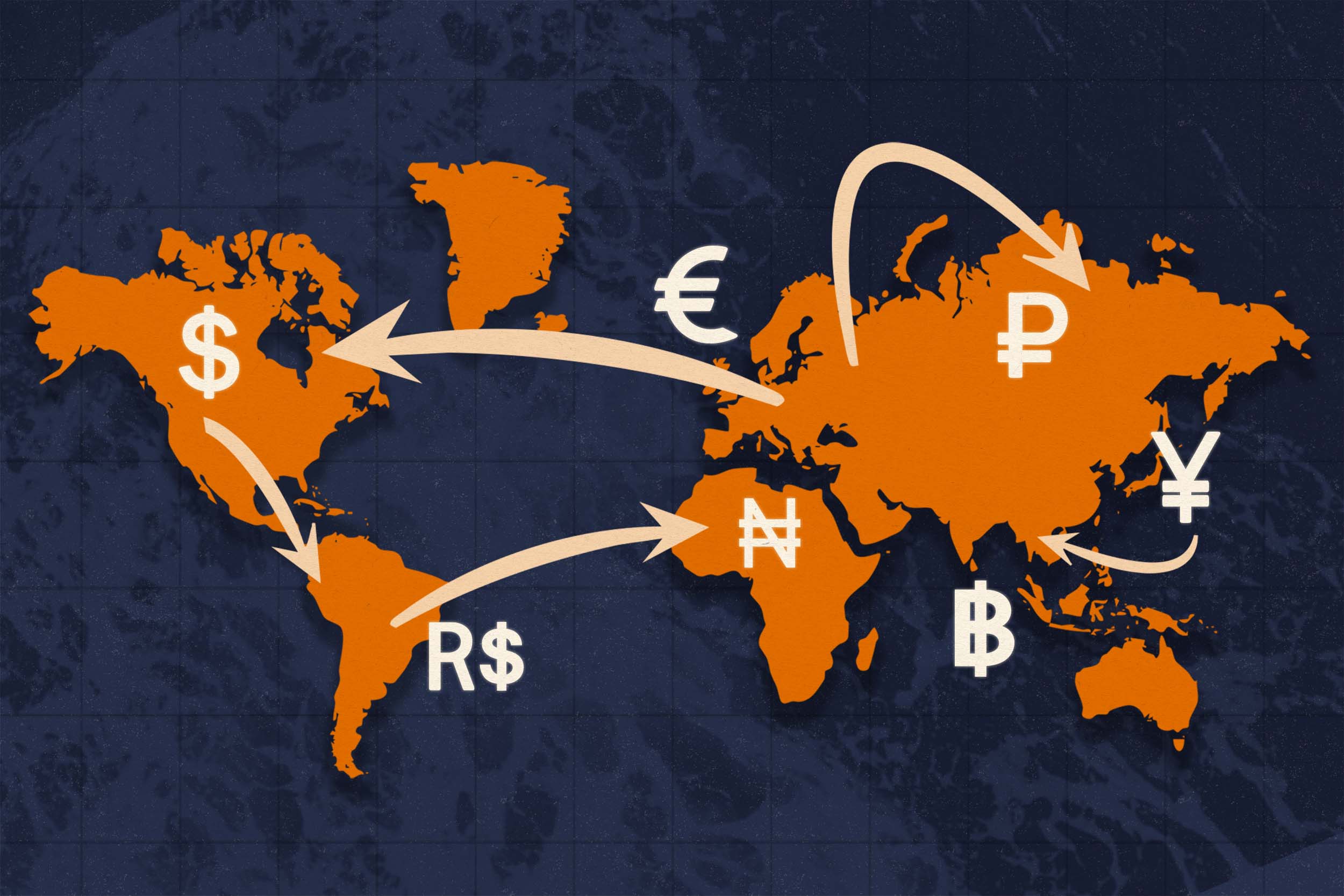In the last 10 years, the traditional role the United States played in the international economy since the end of the Cold War has become more contested in both political parties, even as the nation’s leaders increasingly employ economic tools to advance U.S. interests around the world.
On Friday, the University of Virginia’s Miller Center of Public Affairs hosted the William and Carol Stevenson Conference on “The Future of American Financial and Economic Statecraft” to consider past U.S. international economic policy, its current state and potential future impacts.
UVA Today checked in with conference organizers Alexander Bick and Scott C. Miller, who agreed to field some questions about the current state of the United States’ involvement in the world economy. Bick, an associate professor of practice in public policy at the UVA Frank Batten School of Leadership and Public Policy, is a Miller Center faculty senior fellow. Miller directs the Miller Center’s Project on Democracy and Capitalism and lectures at the UVA Darden School of Business.

Alexander Bick is an associate professor of practice in public policy at UVA’s Frank Batten School of Leadership and Public Policy, and a Miller Center faculty senior fellow. (Contributed photo)
Q. How has the U.S. employed economic sanctions, tariffs and embargoes in its international economic and political policies in the past?
Miller: The use of sanctions, at least to the degree that they are now, is a relatively new phenomenon. The use of this tool, and to a lesser degree, embargoes, has expanded by an order of magnitude or more over the last 15 or so years as presidents from both parties have sought to use America’s control over access to the international financial system to coerce or punish U.S. adversaries.
Tariffs have a long history in the United States, dating back to the founding of the Republic. However, in the pre-Cold War era, tariffs were rarely, if ever, used as tools of statecraft, but rather as mechanisms of domestic politics.
For example, the most robust and consistent tariff regimes were in the antebellum era, particularly under Whig leadership. These tariff programs were not used to cajole concessions from adversaries, but as a way to unite the support of both capital and labor for the Whig Party and for the American system of representative democracy as a whole.
Q. The post-Cold War era saw a boom in international trade and finance liberalization. How have economic policies changed in the past 25 years?
Miller: In the recent past, we’ve experienced two acute shocks that have had profound impacts on confidence in international trade and finance. The first shock was the 2007-08 global financial crisis, which convinced many people around the world that the Western market system was corrupt and doomed, and led many in the United States to wonder whether unfettered markets were in fact able to provide stability and economic growth.

Scott C. Miller directs the Miller Center’s Project on Democracy and Capitalism and lectures at UVA’s Darden School of Business. (Contributed photo)
This opened the door to more broadly questioning the neoliberal narrative of an “End of History” economy. Instead, we’ve seen China moving away from their two-decade-long period of liberalization an embrace of industrial policy in the Biden administration, and Trump’s embrace of tariffs in both his first and second terms.
The second recent shock was the immense scale of government intervention in markets in the wake of COVID-19, both to stabilize the U.S. economy and to begin to diversify U.S. supply chains. This obviously played a role in the inflation crisis, but it also produced an unprecedented disequilibrium in central bank balance sheets and monetary concentration.
Q. What roles are the mechanisms likely to play in the next decade?
Bick: President Donald Trump has called tariffs “the most beautiful word in the dictionary,” and has made clear that he plans to use them to address multiple policy challenges, including righting what he sees as growing imbalance in the international economy, returning manufacturing jobs to the United States and raising revenue that can offset his tax cuts and other policies.
We’ve already seen actions or threats to impose tariffs on Mexico and Canada, Columbia, China and the European Union, as well as tariffs on global imports of aluminum and steel. President Trump has also floated the idea of reciprocal tariffs that would apply to all U.S. trading partners. Collectively, these will reverse decades of relative trade liberalization.
Despite using them extensively in his first term, Trump has been more reticent to turn to sanctions. Another area to watch closely is export controls and controls on foreign investment in the United States, which have been used by both the Trump and Biden administrations to protect critical technologies like advanced semiconductors that will shape the future of the U.S. economy and determine its position in the growing competition with China.
Q. What challenges can we anticipate internationally, and how might they affect the average person?
Bick: The most important immediate impact is to increase uncertainty, especially for businesses that are looking to make investments. We should also anticipate rising prices as importers look to shift the cost of tariffs to U.S. consumers. The more fundamental question is whether we could be heading toward an era of greater protectionism, nationalism and instability, as nations look inward and the mechanisms that have kept the peace globally since World War II further atrophy. That would have profound implications for the average American.










